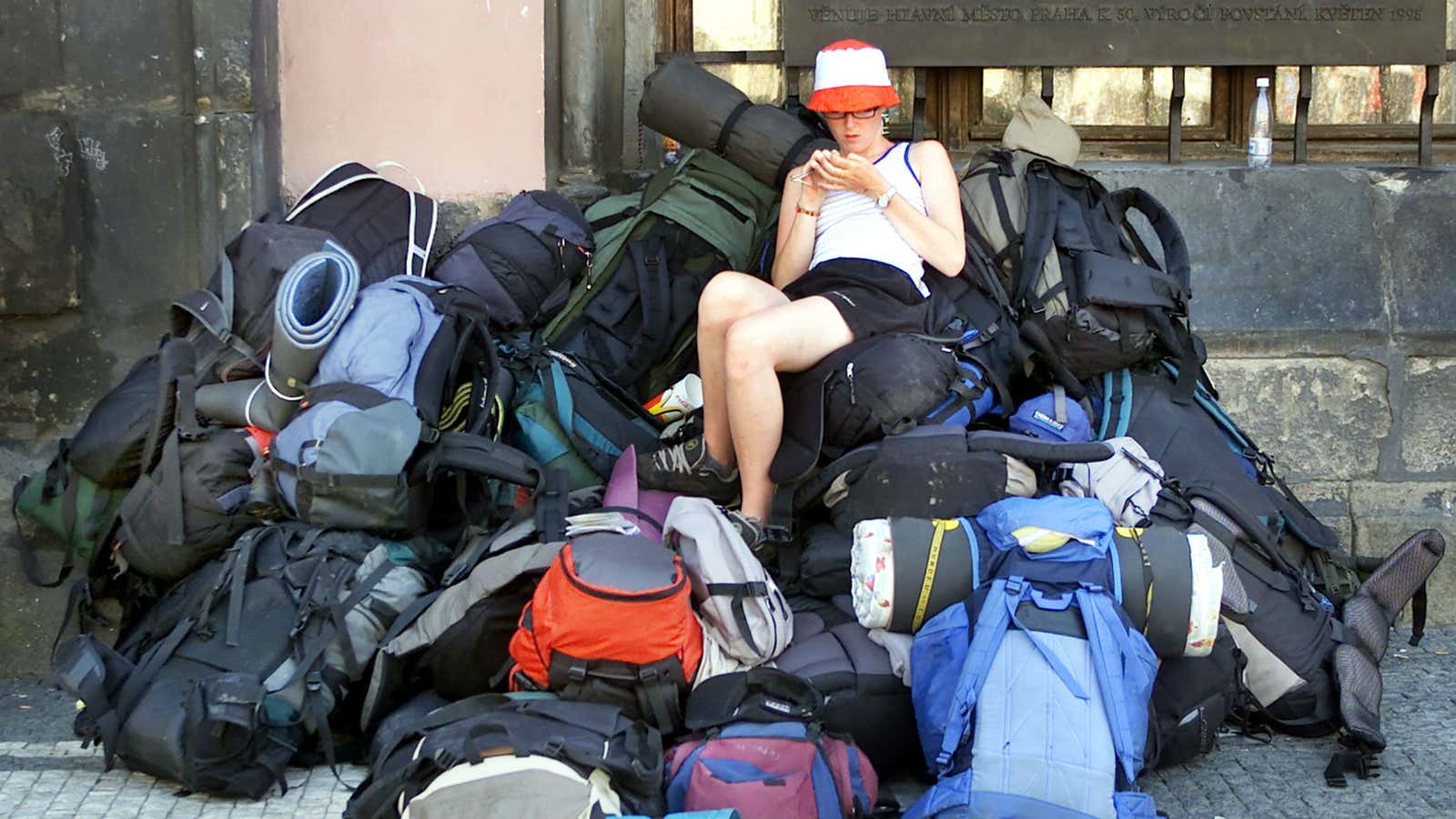Traveling the world for free has always been a privileged, utopian dream. Whether it’s hitchhiking and scrubbing floors in a hostel or ashram or “WWOOF-ing” (working on an organic farm in exchange for a free place to live), travelers have found ways to live a version of their frugal dream.
But in the age of social media, crowdfunding, and hashtags, the dream of free travel has morphed once again, giving us the phenomenon of #begpackers: People who travel backpacker-style on a beggar’s budget, asking for contributions, freebies, and handouts from locals or fellow travelers to as they go.
Some busk, some beg, and some sell odds and ends. Often, they do it in countries where the average income is far lower than what they could earn working a minimum wage job at home. But however they do it, by the end of 2017, pictures of these beggars became a social media meme.
People uploaded photos of bedraggled-looking travelers clutching cardboard signs. While the phenomenon appears to be centered in Southeast Asia—a favorite of Western budget backpackers—the ethos underpinning the trend shares spiritual DNA with folks who set up Kickstarters, GoFundMe pages, and crowdfunding campaigns to help fund their trips around the world.
The ethical implications, many critics point out, are clear: Intentionally touching down in a country with no financial means to support yourself effectively guarantees you will be a drain on the local economy. It is perhaps distasteful at best and unethical at worst. In addition, consuming food, water, space, and utilities without spending cash also diverts resources away from locals who need (and deserve) them far more.
It is true that, stripped of context, it is hard to tell if a traveler depicted begging in a social media post is doing so as an ideological lifestyle choice or because they met some actual misfortune, such as losing one’s passport and wallet. (Though it’s worth pointing out that embassies generally have resources to help travelers who are well and truly stranded.) But the glamorization of “traveling for free” in our culture extends beyond this subset of backpackers—and the internet hashtag they’ve spawned.
There’s a Discovery Channel series depicting Westerners who want to see how far they can get with no money, how-to articles in the Guardian asking travelers how they pulled off traveling without money, and professional adventurers who live Tweet their cash-free journey across a continent (including begging for food in a developing country). It’s become enough of an issue in Thailand that there were reports last year of officials asking tourist arrivals to prove they have a minimum amount of cash on them before they enter the country.
Traveling on the cheap, of course, is a time-honored tradition for those privileged enough to contemplate leaving home for leisure. Working while traveling is a tactic many use to keep their wanderings going longer, hence the trend of digital nomads. But intentionally choosing to forgo money—rather than just running out of it while on the road—are two different things. And while some who crowdfund (or beg) their own travel may claim to have charitable leanings, the common thread among these free-loading wanderers is that they have a choice in the matter.
In the age of social media, how we travel, whether we realize it or not, is not just about how much money we have. Instagramming from a luxury hotel versus a so-called authentic homestay are both signals of something much larger than where we are sleeping that night. While begpackers may think their travel habit appears humble, it is a status symbol just like anything else.
